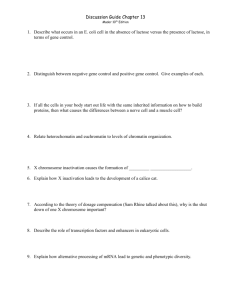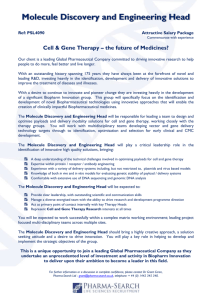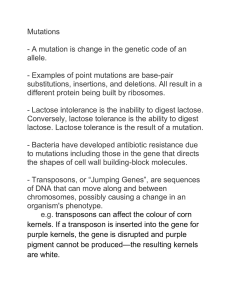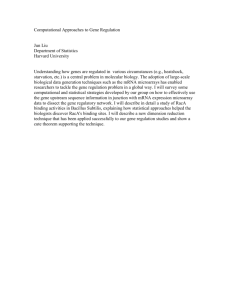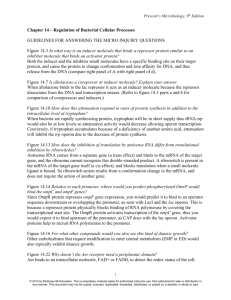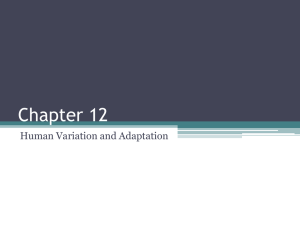The Jacob-Monod Hypothesis of Gene Action in Bacteria
advertisement
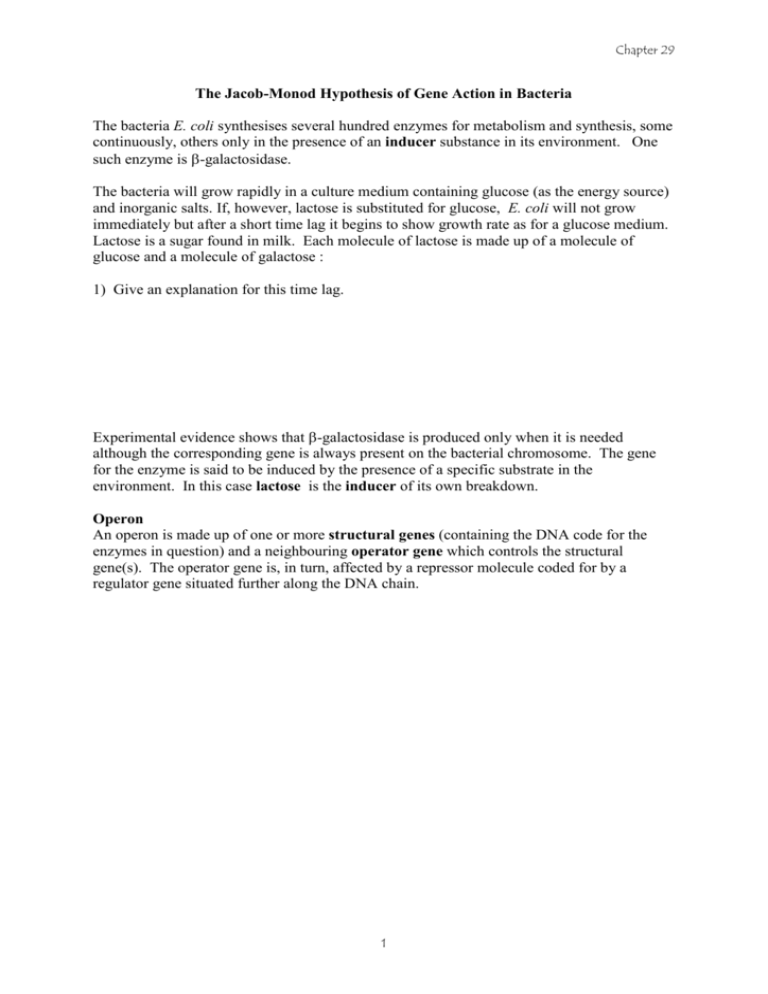
Chapter 29 The Jacob-Monod Hypothesis of Gene Action in Bacteria The bacteria E. coli synthesises several hundred enzymes for metabolism and synthesis, some continuously, others only in the presence of an inducer substance in its environment. One such enzyme is -galactosidase. The bacteria will grow rapidly in a culture medium containing glucose (as the energy source) and inorganic salts. If, however, lactose is substituted for glucose, E. coli will not grow immediately but after a short time lag it begins to show growth rate as for a glucose medium. Lactose is a sugar found in milk. Each molecule of lactose is made up of a molecule of glucose and a molecule of galactose : 1) Give an explanation for this time lag. Experimental evidence shows that -galactosidase is produced only when it is needed although the corresponding gene is always present on the bacterial chromosome. The gene for the enzyme is said to be induced by the presence of a specific substrate in the environment. In this case lactose is the inducer of its own breakdown. Operon An operon is made up of one or more structural genes (containing the DNA code for the enzymes in question) and a neighbouring operator gene which controls the structural gene(s). The operator gene is, in turn, affected by a repressor molecule coded for by a regulator gene situated further along the DNA chain. 1 Chapter 29 Diagram 1. Gene Repressed – Lactose Absent : complete Diagram 2 Enzyme Induction – Lactose Present: Complete 2 Chapter 29 Genetic Control of the Enzyme – Phenylalanine hydroxylase Phenylalanine and tyrosine are 2 amino acids obtained in a human’s diet. During normal metabolism, excess phenylalanine undergoes the following pathway. Complete: Phenylketonuria (PKU) is a hereditary disorder caused by a blockage in this metabolic pathway. Describe how this disease arises. How is this condition detected in new born babies? How is this condition controlled? Why is the sufferer not completely albino Describe with the aid of a diagram how the condition of albinism arises. 3
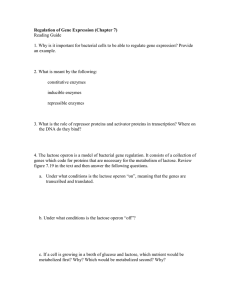
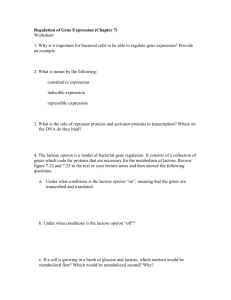

![Lac Operon AP Biology PhET Simulation[1]](http://s3.studylib.net/store/data/006805976_1-a15f6d5ce2299a278136113aece5b534-300x300.png)
